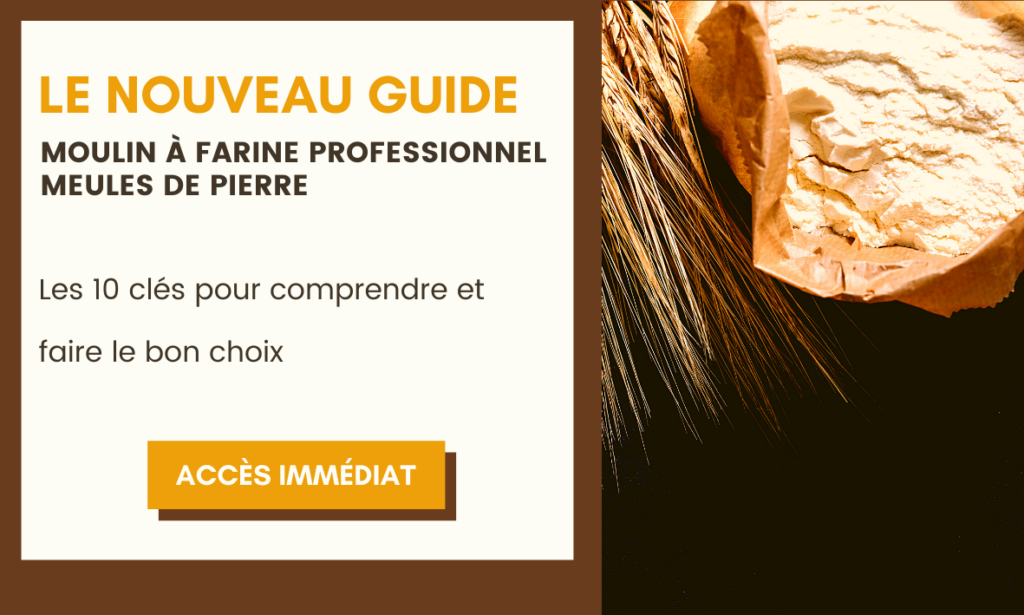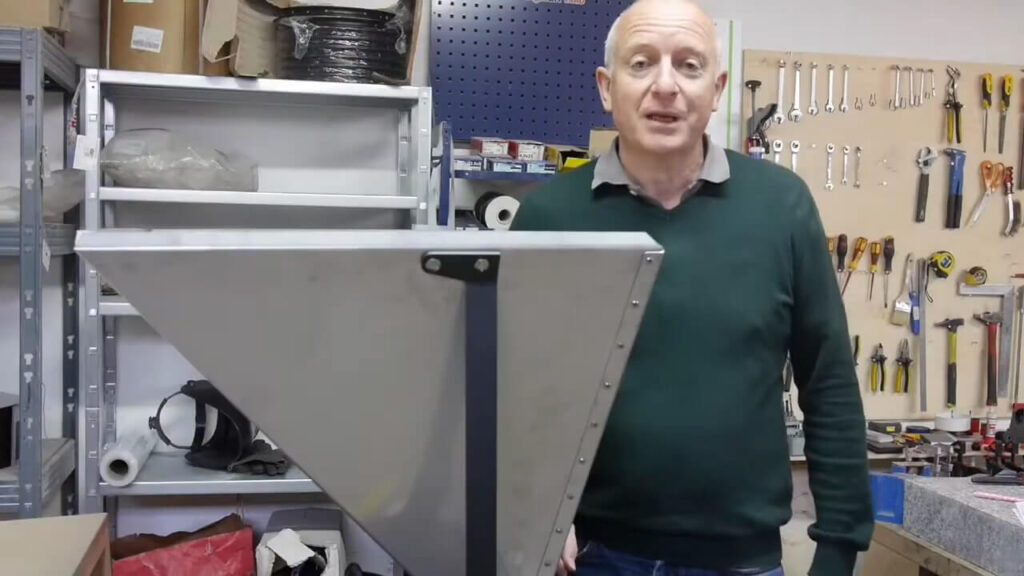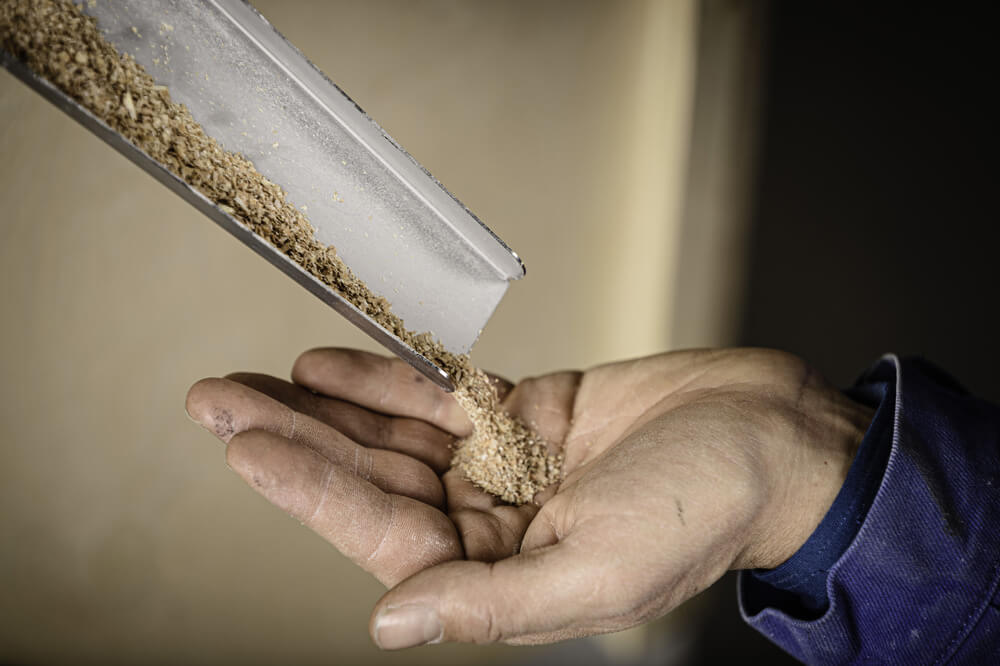This article has been updated, we recommend that you read this year’s version here
There are different types of stone mills available today, including: the stone mill for private use, the stone mill for professional use, the so-called ‘traditional’ stone mill, which crushes the wheat due to the weight of the millstone, and finally the stone mill known as the Astrié, which preserves the quality of the grain.
We manufacture a range of Astrié stone mills, so we’ll be answering your questions about the Astrié mill, because it’s this type of mill that underpins our experience and belief in a self-sufficient agricultural world. To give you a quick answer, you’ll need to spend around €8,600 ex VAT in 2021 for your first mill. But let’s look at the details together:
The price of a stone mill depends on various factors. These include:
- your flour requirements
- the origin of the materials
- the mill can be customised to suit your needs
- …
A more recent article has been posted online, you can follow the link here: ‘What is the price of an Astrié millstone flour mill for a project that looks like me?’
Prices for a complete mill
Buying an Astrié stone mill is a real investment. It has to be made after weighing up the key factors that will make your project a success.
At Astréïa, the price of our Astrié stone mill starts at €8,600 before tax (excluding VAT) for a mill with a 50cm diameter, and double that for a flour mill with 100cm wheels (2019 prices).
What questions should you ask before buying an Astrié flour mill?
- how many kilos of flour do you need per week/per day/per month?
- what do you want to do with the flour?
- Do you have a supply of wheat suited to your project?
- What type of grain do you want to grind?
- Do you want to make different types of flour (T80, T110, T130, T65, etc.)?
- Are you thinking of making a gluten-free flour?
- Is using French materials important to you?
- Is knowing your artisan a key factor in your milling project?
- Is it necessary to receive advice before you buy in order to invest today?
- Will automatic bagging save you time compared with your current organisation?
- Will the fact that your customers can see the flour falling into the sieve enable you to stand out from the crowd?
- Will the fact that your customers can see the mill and the grinder grinding each grain guarantee the success of your project?
- Is there anything special about your electrical installation in the premises you occupy?
- …

The impact of your objective on the price of the mill
- To make several flours, you’ll need to buy several sieves (costing around €400 per sieve for a 50cm mill).
- Show your customers the millstones turning through a transparent arch (this will also cost an extra €600 or so).
- Making gluten-free flour requires you to follow precise regulatory conditions, in particular to ensure that no other type of flour has been in contact with the gluten-free flour. The simplest solution here is to choose a single mill with 2 blutters, one for your gluten-free flour and another for your other flours.
- Automatic bagging of your flour is an undeniable time-saving option, depending on your organisation and logistics. This option costs around €2,000 (2019 prices).
There is no one-size-fits-all option: it all depends on your project, your objectives and your constraints.
Do you have any doubts? Would you like to discuss your project with us? Let’s get in touch about your Astrié mill project, discuss your objectives and constraints and draw up a precise estimate together. There’s no need to add options today, if some of them will only be useful to you in several years’ time. The mill is evolutionary, so take what you need in the next few months and we can add the necessary elements later.
A mill made in France, by a craftsman you know!
At Astréïa, we believe that this is an investment that requires thought and questioning. That’s why we take the time to understand your project so we can advise you on the options, the production, the seeds you want to grind…
You can come and visit our workshop and ask us questions, or you can visit remotely to immerse yourself in our world. We make ourselves available to answer your questions, because this is an investment that we want to make meaningful.
This is not directly linked to the price of the mill, as we do this for each of our customers, but it does have a bearing on the success of your use of the mill once you’re home.

Buying a second-hand stone mill: an alternative for a mill right now?
At Astréïa, we currently offer a new stone mill that we manufacture in the Ain region of France. Often, our customers looking for a second-hand Astrié type flour mill do so for budget reasons, and we fully understand this.
At the same time, having a new stone mill gives you a certain guarantee of the origin of the materials, its use, personalised advice on installation and, of course, your guarantee. We’ve written an article on this subject entitled ‘5 reasons to buy a second-hand Astrié mill’.




